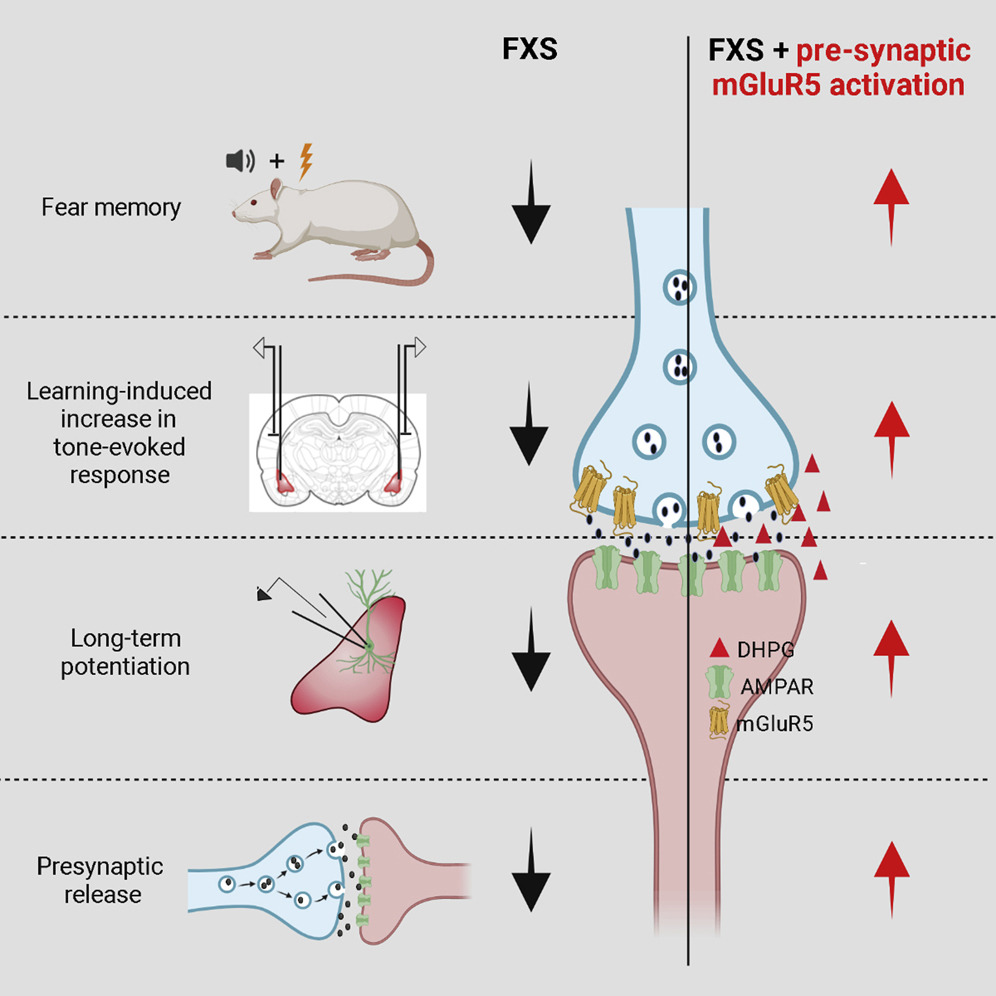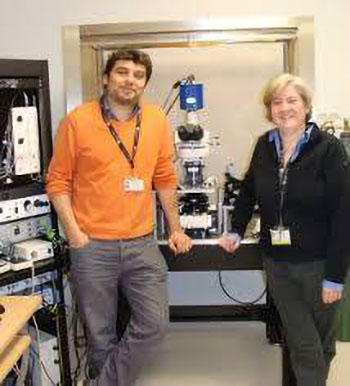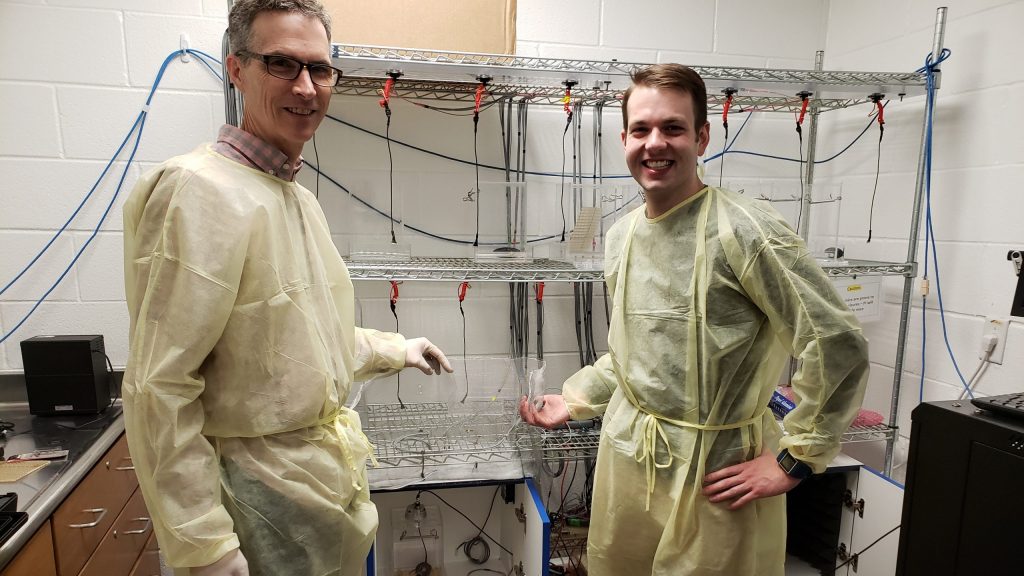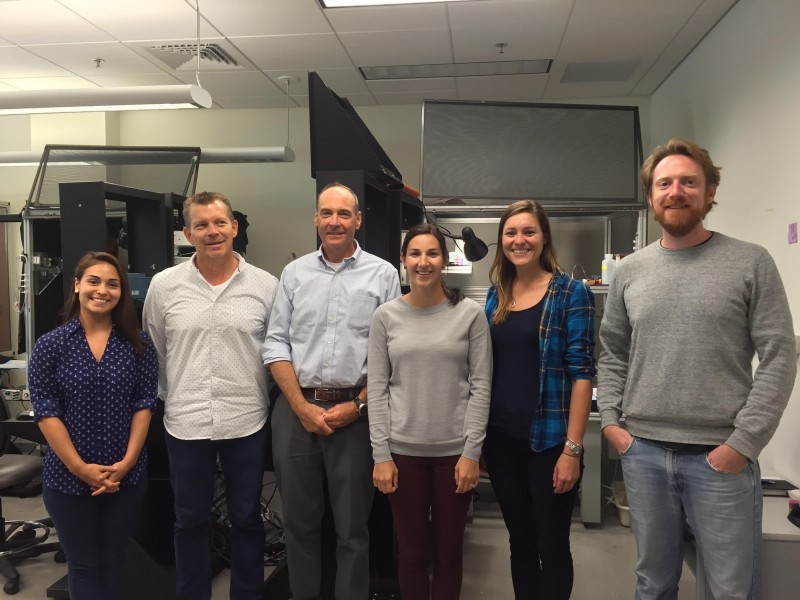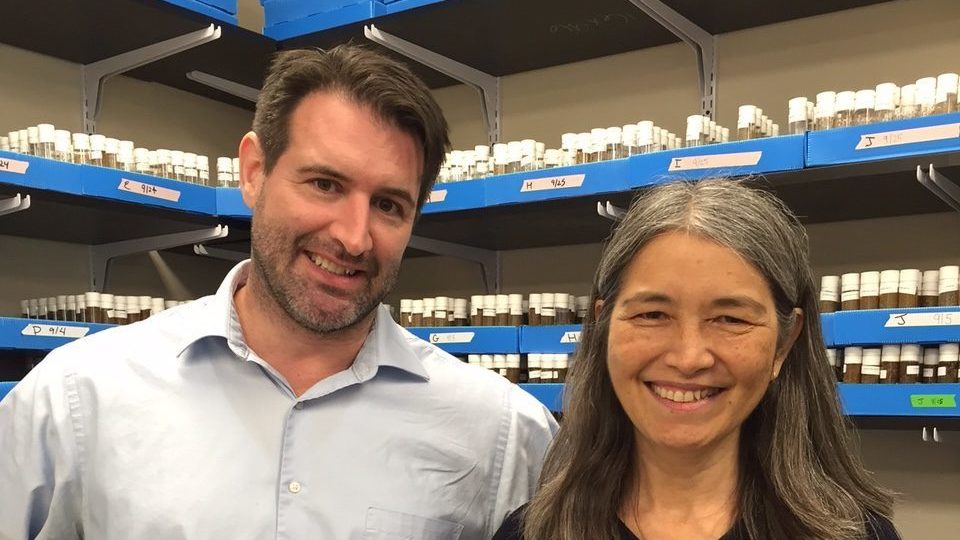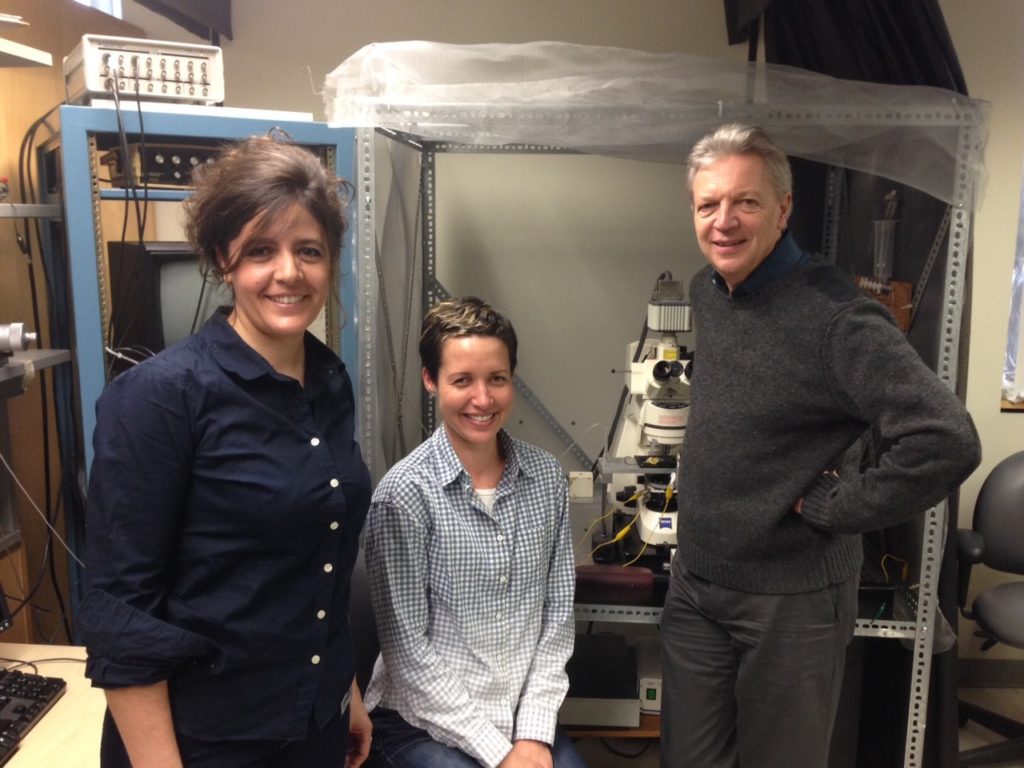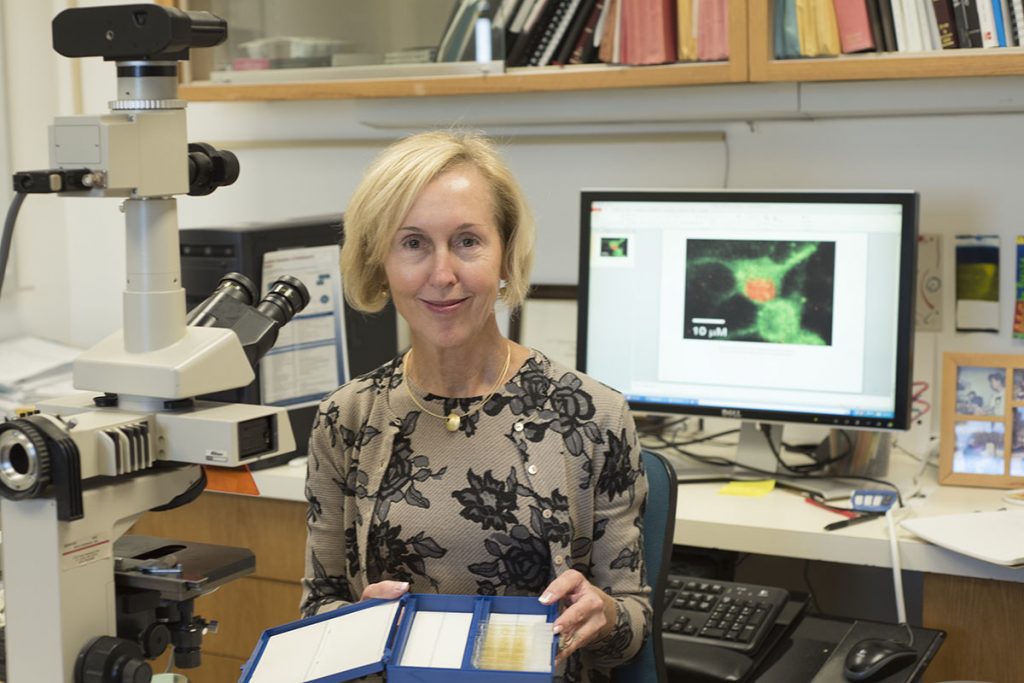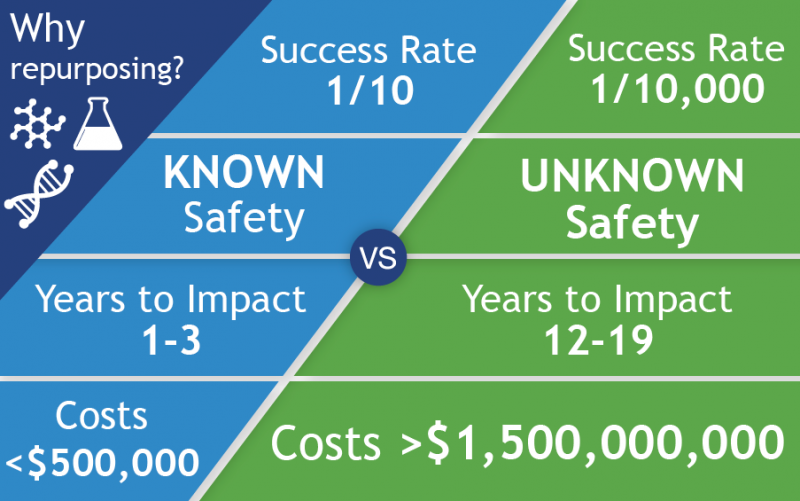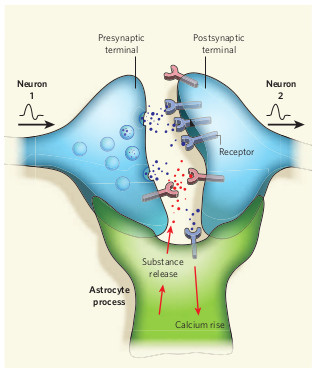Pharmacologically Activating mGluR7 as a Novel Therapy for Fragile X Syndrome
Join Dr. Tsai and Dr. Kumar on a journey into novel treatments for Fragile X syndrome. Activating mGluR7 could be a game-changer, opening up uncharted therapeutic territory.
Correcting the Brain’s Emotional Memory Center
FRAXA Investigator Dr. Sumatra Chattarji investigated the synaptic basis of deficient conditioned fear and its reversal in Fragile X syndrome rats. Results published.
Cellular-Specific Therapeutic Targeting of Inhibitory Circuits in Fragile X Syndrome
The team studied how inhibitory brain circuits malfunction in Fragile X and tested ways to restore balance by targeting mGluR and endocannabinoid signaling.
Auditory System Dysfunction and Drug Tolerance in the Fragile X Mouse
A $90K FRAXA grant will help uncover why Fragile X causes sound hypersensitivity and test ways to correct brain circuit dysfunction linked to auditory overload.
Scientists Find a New Way to Reverse Symptoms of Fragile X
FRAXA Investigator and MIT Professor Mark Bear and his colleagues have identified a valuable new target for Fragile X therapeutics: GSK3 alpha. Several FRAXA research teams previously identified GSK3 beta as a treatment target for Fragile X. The catch is that, so far, GSK3 beta inhibitors have proven too toxic for regular use. Dr. Bear’s new discovery opens up the possibility of developing more selective compounds with less toxicity and fewer side effects. Interestingly, lithium inhibits both GSK3 versions – alpha and beta.
Ganaxolone Fragile X Clinical Trial Showed Disappointing Results
Ganaxolone, an experimental drug from Marinus Pharmaceuticals which targets GABA receptors, did not show promise for Fragile X syndrome in a clinical trial.
Screening 2,320 FDA-Approved Drugs for Potential Treatment of Fragile X
FRAXA funded a screen of 2,320 FDA-approved compounds in the Fragile X fly model to identify hits that improve memory and social behavior for advanced testing.
Spectrum News – Newly Discovered Aspects of Fragile X Spur Next Wave of Drugs
Many drugs for Fragile X syndrome have failed in large clinical trials, but candidates that target new aspects of the condition may fare better.
How Promising is CRISPR for Fragile X?
Peter Todd, MD, PhD, Assistant Professor in the Department of Neurology in the University of Michigan Medical School, was awarded a FRAXA Research Grant for gene reactivation with the use of CRISPR. In this interview he tells us about CRISPR in Fragile X research, how realistic is it that it could turn the Fragile X gene back on, and if it can really cure Fragile X.
Newly Discovered Regulatory Pathways in Fragile X
Studies at Yale University and elsewhere are showing that FMRP plays a significant role in the regulation of potassium channels. Looking forward, potassium channel opener drugs could rescue some symptoms of Fragile X in humans.
Defining Subcellular Specificity of Metabotropic Glutamate Receptor (mGluR5) Antagonists
This study showed that selectively targeting mGluR5 receptors in specific neuronal compartments can correct distinct Fragile X synaptic defects, improving precision therapy.
Mechanisms of Tolerance to Chronic mGluR5 Inhibition
FRAXA supported research showing mGluR5 antagonist tolerance develops quickly in Fragile X models, guiding new strategies to prevent or overcome it.
Clinical Trial of Ganaxolone in Patients with Fragile X Syndrome
Dr. Frank Kooy and colleagues conducted a double blind crossover trial of ganaxolone in patients with Fragile X with FRAXA funding. Results of this study were mixed.
PIKE as a Central Regulator of Synaptic Dysfunction in Fragile X Syndrome
With $255,000 from FRAXA Research Foundation, Dr. Suzanne Zukin at Albert Einstein College of Medicine studied signalling pathways in Fragile X syndrome.
Mark Bear’s Goal: Disease-Modifying Treatments for Fragile X
Researcher Mark Bear, PhD, Picower Professor of Neuroscience, sees success developing disease-modifying treatments for Fragile X syndrome and other developmental brain disorders. Finally, hope. And it comes from his lab, The Picower Institute for Learning and Memory, Department of Brain and Cognitive Sciences, Massachusetts Institute of Technology.
Abnormalities of Synaptic Plasticity in the Fragile X Amygdala
With FRAXA funding, Dr. Sumantra Chattarji at NCBS explored how Fragile X alters amygdala function. Results were published.
Targeting AMP-Activated Protein Kinase Pathway in Fragile X Syndrome
With this grant from FRAXA, Dr. Peter Vanderklish explored AMPK activators to treat Fragile X. Both metformin and resveratrol, found in red wine, are AMPK activators.
Fruit Flies to Model and Test Fragile X Treatments
Boosting cAMP signaling restores memory and fixes brain-signaling defects in Fragile X models, suggesting diabetes drugs like metformin may help.
Fragile X Treatment: New Research Directions
In the wake of negative results from several high-profile clinical trials in Fragile X, we find ourselves questioning many of our previous assumptions about the nature of this disorder. After all, understanding the basic pathology of disease is critical to development of new treatments — this is true across the board, in all branches of medicine.
The Endocannabinoid System in a Mouse Model of Fragile X Syndrome
Fragile X disrupts endocannabinoid signaling. This study in mice demonstrated that correcting it may calm brain hyperexcitability and improve symptoms.
Inhibitors of STEP as a Novel Treatment of Fragile X Syndrome
STEP inhibition reversed behavioral and synaptic Fragile X deficits in mice (Neuropharmacology, 2018), highlighting STEP as a promising treatment target.



